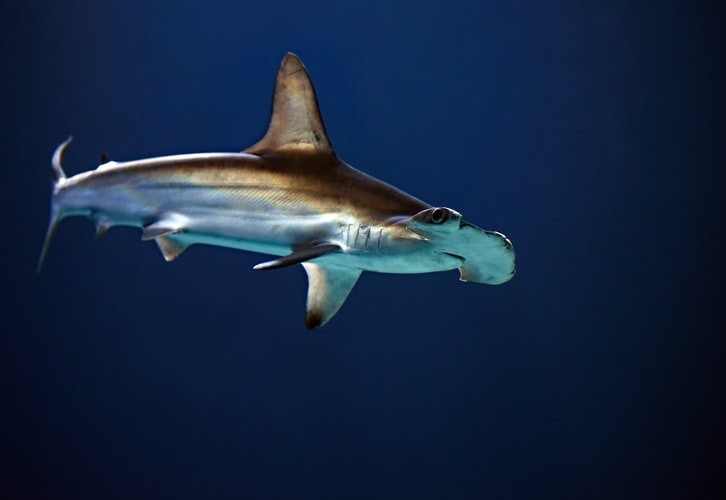Beachgoers were taken aback when a pregnant hammerhead shark washed up on the sand as they were having fun.

=
SHARK!!!
The shark, which weighed a massive 222.26 kgg, was discovered dead earlier this month at Pompano Beach, Florida.
As construction employees using heavy equipment retrieved the 11-foot predator's body from the sand, stunned spectators gathered around it.
"They brought in a Bobcat and lifted it out of the water because they didn't want it to go back in," said Kevin Nosal, a local resident.
"You never want to see an animal this large lying on the beach," says the narrator.
"It's 11 feet long and weighs more than 500 pounds." It's a female; therefore, when a female departs, it's always tragic."
According to Local10, experts gathered samples and determined that the animal was a pregnant female hammerhead.
The encounter was a "very unusual event," according to Hannah Medd, conservation biologist and founder of the American Shark Conservancy, who claimed her team only gets a call about washed-up hammerheads one to four times a year.
Medd believes the almost adult shark perished after growing disturbed and swimming onto the beach the day before after a confrontation with a fisherman.
"There's some fishing line in her gills, and there was a huge hook in the side of her mouth in previous photographs, which implies she was probably fishing," she told CNN.
"These sharks are skilled fighters.
Shark Attacks
Shark attacks in shallow water appear unusual - after all, sharks may approach so close to the coast that they can hardly move! It does, however, occur. While it's difficult to determine why sharks attack in shallow water, some species, like the bull shark, prefer to dine in murky, warm water. Swimming and surfing interactions are expected as a result of this inclination. They don't attack because of the yummy human flesh, though.
Shark attacks are rare each year, despite their curiosity and territorial instincts. There were just 88 unprovoked shark attacks globally in 2017. Only five of the assaults were lethal. However, numbers like these don't change that being attacked by a shark is terrifying. Knowing what to do if a shark attacks you or if you frequent the beach can be advantageous in the - improbable - event that an attack occurs. Find out how to prevent being attacked by a shark and what to do if one does.
Shark Encounters
In 2021, the United States had the most unprovoked shark bites, with 47 verified incidents consistent with long-term patterns. This is 42% more than the 33 accidents in the United States in 2020. The 47 instances account for 64% of the total worldwide. This is an increase from 2020 when the United States accounted for 58 percent of all unprovoked bites worldwide.
The 73 confirmed unprovoked instances globally in 2021 were in line with the most recent five-year average of 72 incidences each year (2016-2020). On the other hand, Unprovoked case counts were much lower in 2020, owing to pandemic-related lockdowns. There were 11 shark-related deaths this year, with nine of them being deemed unprovoked. This figure exceeds the worldwide average of five unprovoked deaths each year.
For similar news, don't forget to follow Nature World News!
© 2025 NatureWorldNews.com All rights reserved. Do not reproduce without permission.





